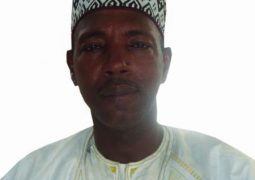Close to Forty Forestry front line staff across the country recently completed a weeklong capacity building on market analysis and development methodology (MA&D), at Nature Camp in Sanyang Village Kombo, South Western Region.
Speaking at the official opening, Mr. Abdoulie A Sanneh, the Principal Forestry Officer and Focal Person for the project stated that market analysis and development methodology constitutes extremely essential step in community forest process leading to the sustainable management of forests by the communities.
According to him, this step is important because it shows the communities that a forest can produce income just like their farmlands, thus reinforcing their interest in the management of the remaining Gambian forests.
"The market of forest products and service from community forest ensure that villagers benefit directly whilst encouraging the sustainable management of Gambian forest resource," he asserted.
For his part, Mr. Kanimang Camara, the training consultant on marketing and analysis development, revealed that forestry staff and staff of the collaborating agencies were given the opportunity to improve themselves in a worth while manner.
"As in the past where foresters worked towards motivating communities to protect, they must now increasingly guide them towards gaining income from their forests," he posited.
According to Mr. Camara, the main strength of the marking analysis and development process is its systematic inclusion of social and environmental concerns alongside the technological, commercial and financial considerations of products or services.
Mr. Camara revealed that MA&D promotes four important aspects of development, namely social or institutional, market sustainability, resource sustainability and technical sustainability. He stated that capacity building on MA&D for foresters will strengthen institution at the local level in order to provide the support local people need to control their own resources and to develop and run small scale forest enterprises.
He maintained that the process is broken down into three phase, namely assess the existing situation, identifying products, markets and means of marketing and plan enterprise for sustainable development.
Mr. Demba Sanyang, a facilitator also stressed the importance of the training, noting that it would enhance the capacity of participants on the subject matters.
According to him, foresters or interested group members are guided to develop enterprise strategies and business plans for perishable products.


